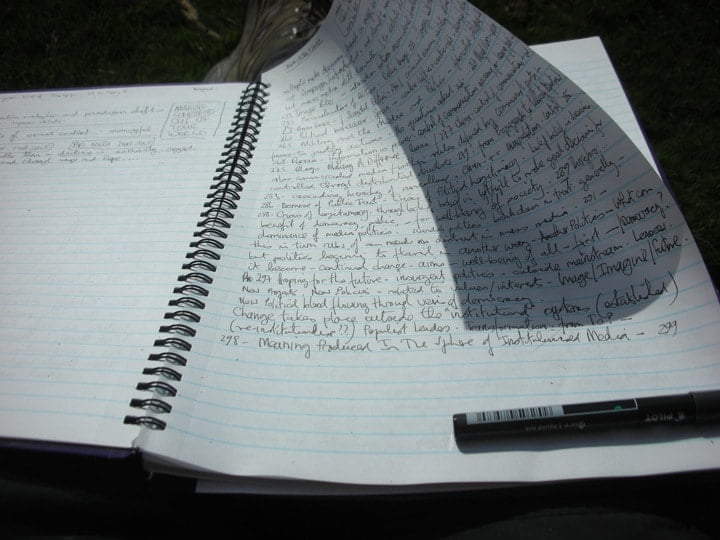When embarking on the arduous journey of writing a dissertation, the editing phase can be particularly daunting. As you refine your arguments and polish your prose, having the right resources at your disposal can make a world of difference. Here, we’ve compiled a list of top books that every student should read for dissertation editing. These invaluable guides will help you navigate the complexities of academic writing, ensuring your work is clear, concise, and compelling.
Understanding the Essentials of Dissertation Editing
Before diving into the recommended books, it’s crucial to grasp what dissertation editing entails. Editing a dissertation goes beyond correcting typos and grammatical errors; it involves enhancing the structure, coherence, and flow of your work. A good dissertation editor not only improves the language but also ensures that your arguments are well-supported and your ideas are logically presented.
Must-Read Books for Dissertation Editing
“The Elements of Style” by William Strunk Jr. and E.B. White
The Elements of Style is a timeless classic that has guided countless writers toward clarity and precision. This book offers essential rules of usage, principles of composition, and advice on writing style. It’s an indispensable resource for anyone looking to improve their writing, making it a must-read for dissertation editing.
“Writing Your Dissertation in Fifteen Minutes a Day” by Joan Bolker
Joan Bolker’s book is a practical guide that provides strategies for writing and editing a dissertation. Bolker, a co-founder of the Harvard Writing Center, shares tips on how to break down the writing process into manageable tasks. Her advice on overcoming writer’s block and maintaining momentum is particularly valuable.
“The Chicago Manual of Style”
For detailed guidance on citations, grammar, and formatting, The Chicago Manual of Style is unmatched. This comprehensive reference book is widely used in academia and provides clear instructions on everything from punctuation to the intricacies of citation styles. It’s a crucial tool for ensuring your dissertation adheres to academic standards.
“They Say / I Say: The Moves That Matter in Academic Writing” by Gerald Graff and Cathy Birkenstein
They Say / I Say introduces readers to key rhetorical moves that can enhance academic writing. This book teaches you how to effectively present your arguments and engage with existing literature, making it an excellent resource for dissertation editing. The templates provided can help you structure your writing and ensure your arguments are persuasive.
“The Craft of Research” by Wayne C. Booth, Gregory G. Colomb, and Joseph M. Williams
The Craft of Research is a comprehensive guide to the research process, from formulating a research question to presenting your findings. The book’s section on revising and editing is particularly useful, offering practical advice on how to refine your work. The authors emphasize the importance of clarity and coherence, which are essential for effective dissertation editing.
“Revising Prose” by Richard A. Lanham
Richard Lanham’s Revising Prose focuses on the art of revision. Lanham introduces the “Paramedic Method,” a systematic approach to editing that helps writers eliminate wordiness and improve clarity. This book is a valuable resource for students looking to make their dissertations more readable and engaging.
“A Manual for Writers of Research Papers, Theses, and Dissertations” by Kate L. Turabian
Often referred to as “Turabian,” this manual is an authoritative guide for academic writing. It provides detailed instructions on research, writing, and editing, tailored specifically for students. The sections on editing and proofreading offer practical tips for polishing your dissertation.
Practical Tips for Effective Dissertation Editing
While these books are invaluable resources, there are also practical tips that can help you edit your dissertation more effectively.
Take Breaks Between Writing and Editing
It’s important to distance yourself from your work before you begin editing. Taking a break allows you to return to your dissertation with fresh eyes, making it easier to spot errors and areas for improvement.
Read Your Work Aloud
Reading your dissertation aloud can help you identify awkward phrasing and inconsistencies. Hearing your words can provide a new perspective and make it easier to catch mistakes that you might overlook when reading silently.
Use Editing Software
While human judgment is irreplaceable, editing software can be a helpful tool for catching grammatical errors and improving readability. Programs like Grammarly and Hemingway can provide useful suggestions and highlight issues that need attention.
Seek Feedback
Don’t hesitate to seek feedback from peers, mentors, or a professional dissertation editor. An outside perspective can provide valuable insights and help you identify weaknesses in your argumentation or writing style.
The Role of a Professional Dissertation Editor
While self-editing is essential, enlisting the help of a professional dissertation editor can elevate your work to the next level. A dissertation editor brings an objective eye and specialized expertise, ensuring your dissertation is not only free of errors but also polished and persuasive.
What to Look for in a Dissertation Editor
When choosing a dissertation editor, consider their experience, credentials, and familiarity with your subject area. A good editor should provide constructive feedback and work collaboratively with you to enhance your dissertation.
Benefits of Hiring a Professional Editor
Hiring a professional editor can save you time and stress, allowing you to focus on other aspects of your research. A professional can help you refine your arguments, improve your writing style, and ensure your dissertation meets academic standards.
Conclusion
Editing your dissertation is a critical step in the academic journey. The books and tips mentioned in this article can serve as valuable resources, helping you navigate the complexities of dissertation editing. Remember, the goal of editing is not just to correct errors, but to enhance the clarity, coherence, and overall quality of your work. Whether you’re editing your dissertation yourself or seeking the assistance of a professional dissertation editor, these resources and strategies will help you achieve a polished, compelling final product.
FAQs
What is the most important aspect of dissertation editing?
The most important aspect of dissertation editing is ensuring clarity and coherence. Your arguments should be logically structured, and your ideas should flow seamlessly. This makes your dissertation more readable and persuasive.
Can I edit my dissertation myself?
Yes, you can edit your dissertation yourself. However, it’s beneficial to seek feedback from others and consider hiring a professional dissertation editor for a more thorough review.
How long should I wait before editing my dissertation?
It’s advisable to take a break of at least a few days before editing your dissertation. This allows you to return to your work with fresh eyes and a clearer perspective.
What software can help with dissertation editing?
Editing software like Grammarly, Hemingway, and ProWritingAid can assist with grammar, readability, and style. However, human judgment is crucial for effective dissertation editing.
How can I find a good dissertation editor?
You can find a good dissertation editor by seeking recommendations from peers and mentors, checking credentials, and reviewing their experience in your subject area. It’s important to choose an editor who understands your academic requirements and provides constructive feedback.









